Pierre Auger (FAS)
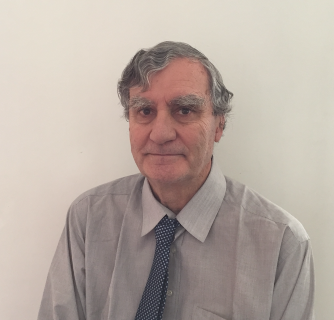
Pierre Auger is Emeritus Research Director at the Research Institute for Development (IRD).He has been a member of the French Academy of Sciences since 2003. Since 2017, Pierre Auger has been President of the Committee for Developing Countries (COPED) of the Academy of Sciences.
His research area concerns the mathematical modeling of biological systems. Biological models must often include, to be realistic, a large number of state variables as well as parameters and are generally very difficult to study. Since the difficulty of dealing with complete ecological systems stems to a large extent from the large number of variables involved in their modeling, it is useful to try to build a reduced model governing only a few global variables. His research work consisted in developing original mathematical methods based on the existence of several time scales associated with the processes taking place in the different levels of organization of biological systems to build a reduced model. These are essentially methods for aggregating variables in dynamical systems. “Aggregated” models are an effective tool for studying the interactions between levels of organization and emergence phenomena. These methods have been applied by Pierre Auger to the dynamics of populations and communities for taking individual behavior into account in population models and for describing the spatial dynamics of a population in heterogeneous environments.
Pierre Auger contributed to the development of bio-economic mathematical models of multisite fisheries with a variable price depending on supply and demand. We have shown that the dynamics of the price could under certain conditions cause situations of over-exploitation with extinction of the fished species. In this case, the fishery exploits the species until the last fish with a high fishing effort because the market price only increases when approaching the overexploitation equilibrium. More recently, he worked on modeling in epidemiology more particularly on the effects of non-pharmaceutical protection and containment measures on the dynamics of the Covid-19 epidemic
Jean-Michel Coron (FAS)
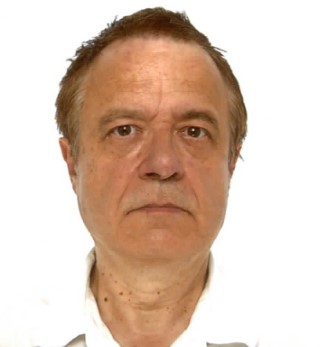
Jean-Michel Coron studied at École polytechnique. He first worked in the field of non-linear functional analysis. Since the beginning of the nineties, he studied the control theory of finite dimensional control systems and of partial differential equations, which includes both controllability and stabilization issues. His results put strong emphasis on nonlinear phenomena, and part of them found real life applications, for example to control channels. Jean-Michel Coron was awarded numerous prizes, like the Fermat prize in 1993, the Dargelos prize in 2002, the ICIAM Maxwell Prize in 2015 and the W. T. and Idalia Reid Prize (SIAM) in 2017. He was invited as a semi/plenary speaker at the 2010 International Congress of Mathematicians, at the 2015 International Congress on Industrial and Applied Mathematics and at the IFAC 2017 World Congress.
He is now a Professor at Sorbonne Université (Paris 6) and a member of the French Academy of Sciences.
Olivier Gascuel (FAS)
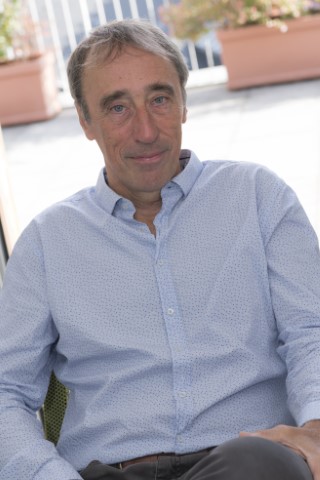
Olivier Gascuel is a Directeur de Recherche of the Centre National de la Recherche Scientifique (CNRS), at the Institut de Systématique, Évolution, Biodiversité (ISYEB) of the Muséum National d'Histoire Naturelle MNHN) at Paris. He holds a Chair of the Paris Artificial Intelligence Research Institute (PRAIRIE) and was elected a member of the French Academy of Sciencesin 2019.
Olivier Gascuel is a bioinformatician and a specialist of biological evolution and its reconstruction from DNA. After studying mathematics and computer science,he completed a PhD in artificial intelligence applied to medicine, before entering the CNRS to develop research in machine learning. He very soon became interested in the application of these methods to the analysis of sequences (DNA, proteins) and to molecular biology. He played a pioneering role in the launch of bioinformatics in France and internationally, particularly in Africa. Heset up the Institut de Biologie Computationnelle at Montpellier, and then the Centre de Bioinformatique, Biostatistique et Biologie Intégrative at the Institut Pasteur at Paris. He has developed many models, methods, algorithms and software programsin bioinformatics, which are used worldwide in a broad range of fields, including PhyML software for phylogenetic reconstruction by maximum likelihood (~35,000 citations). With his team, he uses these methods to study viruses and major pandemics, in particular HIV‐AIDS, the dynamics of outbreaks and the emergence and transmission of resistance mutations. Returning to his early work, he is currently interested in the links between mathematical modelling and deep learning, with privileged applications in molecular epidemiology and in biodiversity and macroevolution studies.
Ho Tu Bao ( VIASM )

Ho Tu Bao is a Director of Data Science Lab at Vietnam Institute for Advanced Study in Mathematics (VIASM) and Professor Emeritus of Japan Advanced Institute of Science and Technology (JAIST) where he was Professor and Head of Machine Learning and Data Mining Lab in the period 1993-2018. He graduated in Applied Mathematics from Hanoi University of Technology (1978); Master of Science (1984) and PhD (1987) in Artificial Intelligence from University of Paris 6, and Habilitation à Diriger de Recherches (1998) from University Paris 9. His main research is on machine learning methods, along with the application of machine learning in medicine and several other fields. Regarding medicine, since 2000, he has focused on research for medical data analysis in Japan and since 2012 on electronic medical record research in Vietnam.
Phan Van Tan (VNU-HUS)
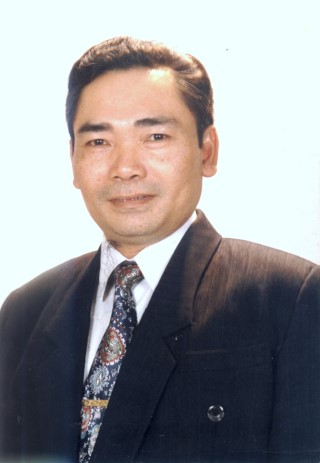
Dr. Tan Phan-Van is a Professor in Earth Sciences and serves as the Leader of the Advanced Research group of Regional Climate Modelling and Climate Change (REMOCLIC) at the VNU University of Science (HUS), Vietnam National University, Hanoi (VNU). With extensive experience in weather and climate research, his primary focus lies in climate change, regional climate modeling, subseasonal to seasonal forecasting (S2S), and data analysis. Dr. Phan-Van has been a leader in various National and International projects centered around Extreme Climate Events (ECE) and their impacts in Vietnam. His expertise extends to seasonal prediction of ECEs for Vietnam, dynamical seasonal tropical cyclone prediction, drought over Vietnam and Southeast Asia, and High-Resolution Climate Projection for Vietnam and Southeast Asia. Presently, he is an active member of the Southeast Asia Regional Climate Initiative (SEARCI), which involves a network of scientists within the Southeast Asia region. He is also part of the Southeast Asia Regional Climate Downscaling (SEACLID/CORDEX SEA) project, contributing to the advancement of climate research and understanding in the region.
Olivier Pironneau (FAS)
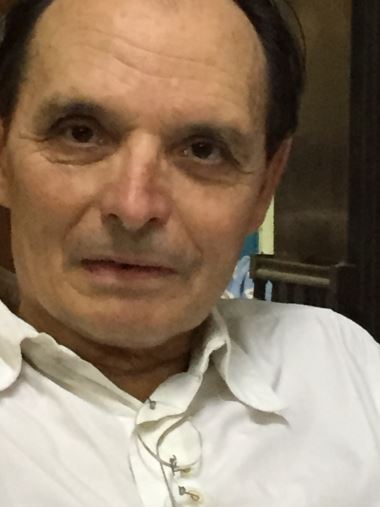
Olivier Pironneau graduated from Ecole Polytechnique Paris and the University of California Berkeley with a PhD in Optimization and Control . He Learned Fluid Mechanics at the University of Cambridge UK. He became a University Professor first in Paris XIII in 1979 and then Paris VI – Sorbonne in 1985.
He has been on the scientific board of many research institutions such INRIA, CNES, Sorbonne University, the Commission on Nuclear Waste CNE, the Natixis foundation, the Finnish Center for Supercomputing CSC; he was elected in 2003 full member of Académie des Sciences
His scientific interests is at the triple point of applied mathematics (partial differential equations, numerical methods, optimization), computer science and applied fields such as fluid mechanics and mathematical . He is the author of 6 books and more than 300 research papers.
